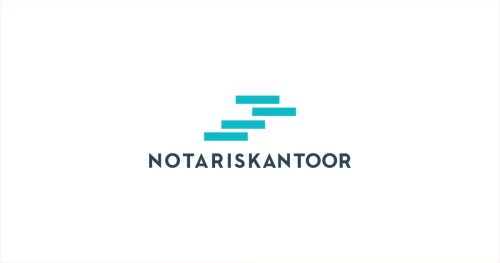Best Conveyancing Lawyers in Belgium
Share your needs with us, get contacted by law firms.
Free. Takes 2 min.
Free Guide to Hiring a Real Estate Lawyer
Or refine your search by selecting a city:
List of the best lawyers in Belgium
About Conveyancing Law in Belgium
Conveyancing in Belgium refers to the legal process of transferring the ownership of real estate from one party to another. This typically involves residential or commercial properties, and includes preparing, verifying, and lodging various legal documents. The process is regulated by Belgian civil law, which sets out the rights and responsibilities of both buyers and sellers. Conveyancing is a detailed process that includes checking property titles, addressing outstanding debts or charges, ensuring all taxes are paid, and registering the new ownership with relevant authorities. In Belgium, notaries play a significant role in the conveyancing process and are responsible for formalizing property transfers through an authenticated act.
Why You May Need a Lawyer
There are several reasons why individuals or businesses in Belgium may require legal advice when buying or selling property. The most common situations include:
- Ensuring ownership rights are accurately transferred without any encumbrances or disputes.
- Clarifying complex legal terminology or documentation associated with property transactions.
- Managing disputes over property boundaries, easements, or rights of way.
- Addressing issues related to co-ownership or inheritance of property.
- Reviewing and negotiating the terms and conditions set out in preliminary contracts or the final deed.
- Dealing with issues concerning unpaid property taxes or charges attached to the property.
- Assisting foreign buyers with navigating local laws and regulations.
- Ensuring compliance with environmental rules, planning, and building regulations.
A lawyer with experience in conveyancing can help safeguard your interests, provide clarity throughout the process, and prevent costly mistakes.
Local Laws Overview
Conveyancing in Belgium is primarily governed by the Belgian Civil Code and several specific local and regional rules. A few key aspects of Belgian conveyancing law include:
- All transfers of real estate must be notarized by a Belgian notary, who drafts the deed of sale.
- A preliminary sale agreement (compromis de vente/koopovereenkomst) is often signed before the deed. This agreement is legally binding once signed, so legal advice before signing is recommended.
- The notary conducts a title search to confirm ownership, check for mortgages, and verify the legal status of the property.
- Buyers are required to pay registration duties or transfer taxes, which differ depending on the region (Flanders, Wallonia, Brussels).
- The entire transaction must be registered with authorities within four months after signing the notarial deed.
- Buyers need to be aware of local urban planning and zoning regulations, which may affect property use or value.
- When buying property as a foreigner, additional requirements or formalities can apply.
The process is usually transparent and secure thanks to the involvement of notaries, but legal risks still exist, especially concerning disclosure of known defects or properly recording buyer-seller agreements.
Frequently Asked Questions
What is the role of a notary in Belgian conveyancing?
The notary is a public official who authenticates and records the property transfer deed, ensures the correctness of the process, conducts necessary searches, collects taxes, and registers the transfer with authorities. The notary remains neutral and cannot offer legal advice favoring one party over the other.
Is it necessary to hire a lawyer aside from the notary?
While not obligatory, having a lawyer can be crucial for reviewing contracts, negotiating terms, and representing your interests, especially during complex transactions or disputes.
What taxes are due when buying property in Belgium?
Property buyers must pay registration duties (transfer taxes), which vary by region. There may also be notary fees, administrative charges, and, in some cases, VAT if new property is being purchased.
What is a preliminary sale agreement?
This is a binding contract between the buyer and seller that states the sale price and conditions. Breaking this agreement can have significant legal and financial consequences.
How long does the conveyancing process take in Belgium?
Typically, transferring property ownership in Belgium can take two to four months from signing the preliminary agreement to completing the notarial deed.
Can foreigners buy real estate in Belgium?
Yes, foreigners are generally allowed to buy property in Belgium, although enhanced due diligence and formalities may apply.
What checks should I do before buying a property?
You should ensure clear title, absence of debts or mortgages, compliance with zoning plans, energy performance certificates, and review the existence of any pre-emption rights or easements.
What are the risks of not using a lawyer?
You risk misunderstanding key documents, overlooking potential liabilities, or failing to spot hidden defects or encumbrances on the property. A lawyer helps minimize these risks.
How is co-ownership handled?
Belgian law provides specific arrangements for co-ownership, especially for apartments and shared buildings, including the establishment of a co-owners association and rules about maintenance, usage, and decision-making.
Are verbal property agreements valid in Belgium?
No, property transfers must be executed in writing and formalized by a notary. Verbal agreements alone have no legal force in property conveyancing.
Additional Resources
For those seeking further information or assistance with conveyancing in Belgium, consider consulting the following:
- Royal Federation of Belgian Notaries (Federation Royale du Notariat Belge/ Koninklijke Federatie van het Belgisch Notariaat)
- Regional land registry offices (Administration de la Documentation Patrimoniale/Kadaster)
- Local Bar Associations for access to specialized conveyancing lawyers
- Municipality planning departments for information on zoning and permits
- The Federal Public Service Finance for details on registration duties and taxes
These organizations can provide guidance, offer relevant documentation, and help you understand your rights and obligations during the conveyancing process.
Next Steps
If you are planning to buy or sell real estate in Belgium and require legal assistance, here is a step-by-step guide to help you proceed:
- Begin by collecting all relevant information about the property and your intended transaction.
- Schedule consultations with a qualified lawyer specializing in Belgian real estate law for independent advice.
- Before signing any agreements, seek your lawyer's review to ensure your interests are protected.
- Engage a notary early in the process, as their involvement is mandatory for property transfers.
- Stay informed about each stage of the process, ask questions, and do not hesitate to request clarifications on any legal document or requirement.
- If disputes or complications arise, rely on your lawyer to negotiate or, if necessary, represent you in court.
Taking proactive legal advice will help you navigate the complexities of Belgian conveyancing, avoid potential pitfalls, and achieve a successful property transfer.
Lawzana helps you find the best lawyers and law firms in Belgium through a curated and pre-screened list of qualified legal professionals. Our platform offers rankings and detailed profiles of attorneys and law firms, allowing you to compare based on practice areas, including Conveyancing, experience, and client feedback.
Each profile includes a description of the firm's areas of practice, client reviews, team members and partners, year of establishment, spoken languages, office locations, contact information, social media presence, and any published articles or resources. Most firms on our platform speak English and are experienced in both local and international legal matters.
Get a quote from top-rated law firms in Belgium — quickly, securely, and without unnecessary hassle.
Disclaimer:
The information provided on this page is for general informational purposes only and does not constitute legal advice. While we strive to ensure the accuracy and relevance of the content, legal information may change over time, and interpretations of the law can vary. You should always consult with a qualified legal professional for advice specific to your situation.
We disclaim all liability for actions taken or not taken based on the content of this page. If you believe any information is incorrect or outdated, please contact us, and we will review and update it where appropriate.
Browse conveyancing law firms by city in Belgium
Refine your search by selecting a city.













